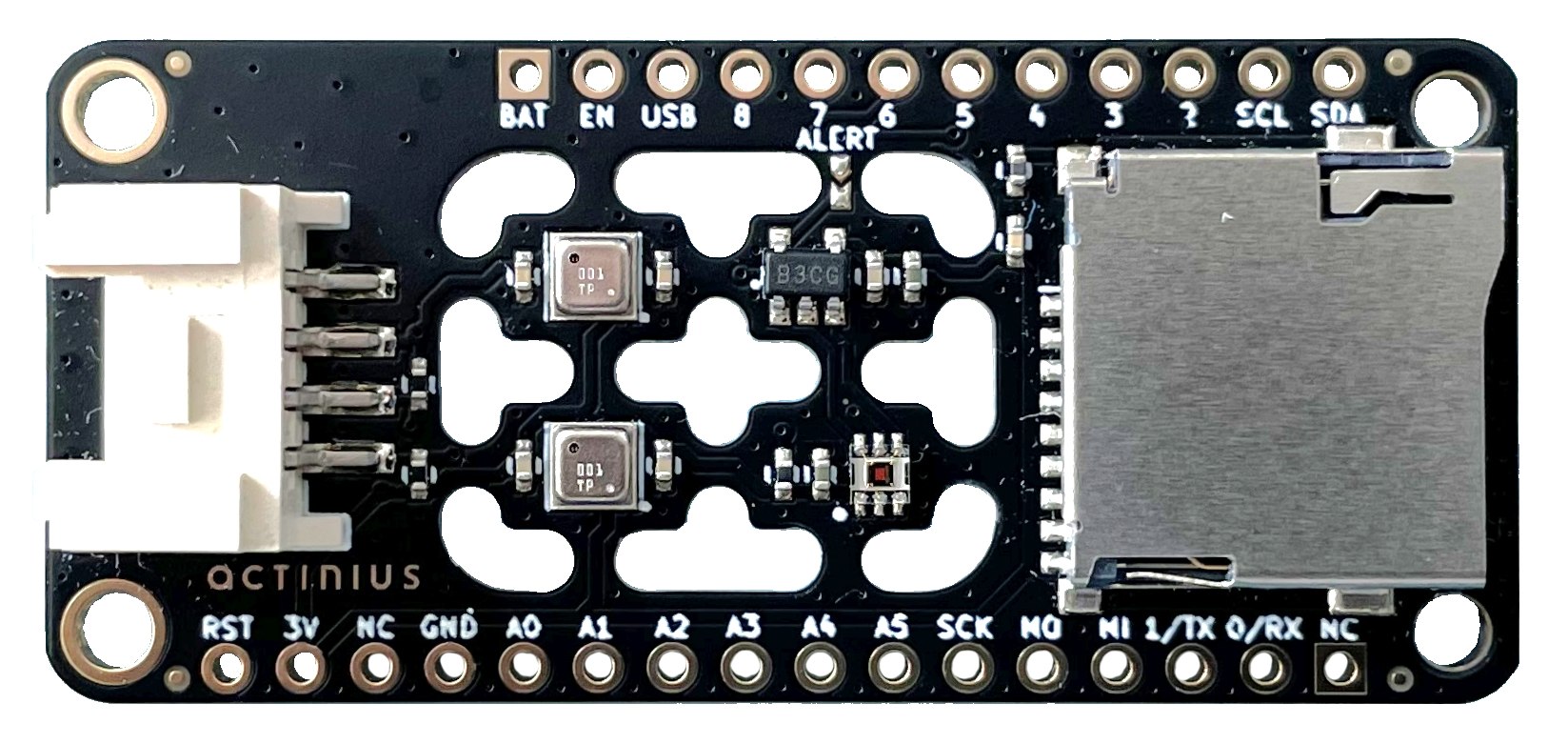Introduction
Environmental Sensor Featherwing v2

The Actinius Environmental Sensor FeatherWing is a board that provides several sensors and features. It can sense light intensity, temperature, humidity, air pressure and gases. Furthermore, it provides datalogging capabilities through a micro SD-card connector. All of the on-board sensors are accessed through the I2C-bus. The I2C connections are available through the pin headers and a Grove connector.
The FeatherWing features the BME688 gas sensor from Bosch; the first gas sensor with an Artificial Intelligence (AI) core. Above measuring temperature, humidity and barometric pressure, the gas sensor can also detect Volatile Organic Compounds (VOCs), Volatile Sulfur Compounds (VSCs) and other gases such as carbon monoxide in the parts per billion (ppb) range.
Bosch provides the BME AI-Studio tool which allows developers to train the BME688 to detect certain gas mixtures and smells. More information can be found on the BME688 software page.
Get your Environmental Sensor FeatherWing at the Actinius Shop
Sensors and features
The board comes equipped with the following sensors:
- BME688 gas sensor capable of measuring:
- Temperature
- Humidity
- Air pressure
- Gas resistance
- Volatile Organic Compounds (VOCs)
- Volatile Sulfur Compounds (VSCs)
- Index for Air Quality (IAQ)
- Variety of gas mixtures through AI trained models
- A second BME688 sensor (optional)
- OPT3002 Ambient Light Sensor
- SI7060 Temperature Sensor
The featherWing also provides a micro SD-Card connector with communication over SPI. This allows for datalogging. Logged data from the BME688 can be fed to the BME AI-Studio tool for training the AI core. The board also provides a Grove connector to connect to external I2C sensors.
See the FeatherWing datasheet for the hardware specifications and capabilities of the sensors.
Support and libraries
All the sensors on the Environmental Sensor FeatherWing as well as the SD-card (via SPI) are supported in Zephyr See the following pages for more information: